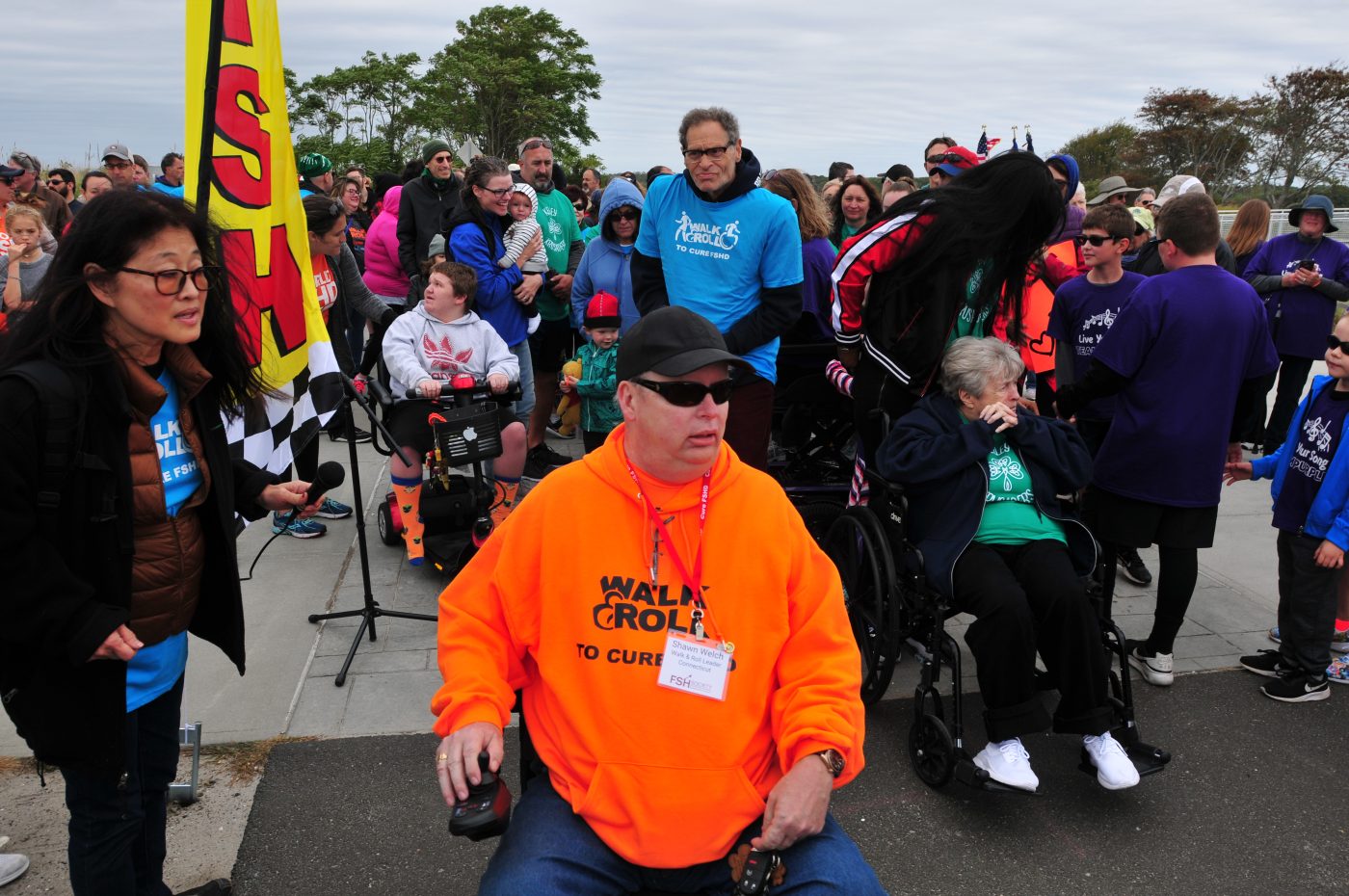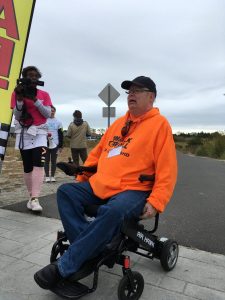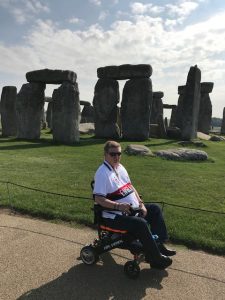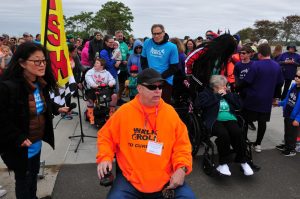FSHD Advocate to Speak at FDA Drug Development Meeting in April
Written by |

Shawn Welch (front) at the 2019 Connecticut Walk & Roll to Cure FSHD on Oct. 6 at Hammonasset Beach State Park. (Photo courtesy Shawn Welch)
When Shawn Welch was diagnosed in 1979 with facioscapulohumeral muscular dystrophy (FSHD), his doctor at the University of Connecticut John Dempsey Hospital told him he’d probably die before his 30th birthday.
“I thought the end was going to come,” Welch told Muscular Dystrophy News Today in a phone interview. He packed up his bags and drove the country trying to live before the disease — which causes weakness in the facial muscles, upper limbs and eventually the legs — took his life.
While the more well-known type of muscular dystrophy, Duchenne, affects all muscle tissue, FSHD does not impact respiratory or cardiac muscles. However, one in every four people requires a wheelchair by age 50.
Now 61, Welch resides in Orange, Conn. In retirement, he has turned into a mentor, advocate, and friend of people with FSHD; he’s also community leader of the Connecticut Chapter of the FSHD Society.
In that capacity, Welch will attend an externally led April 21 patient-focused drug development (PFDD) meeting on FSHD at the U.S. Food and Drug Administration (FDA) in College Park, Md.
Welch aims to teach the FDA to use “positive self-talk” and language that leaves room for dreams. He said “hope” should be removed from our vocabulary because it’s not a powerful enough word.
“Imagine if Martin Luther King Jr. said ‘I have a hope,’” Welch said. “That is not as powerful as saying ‘I have a dream.’ You fight for your dreams.”
Welch’s dream is to first eradicate FSHD and then do the same with all other genetic disorders.
“I would like to make FSHD a thing of the past,” Welch said.
He pointed to the March of Dimes as an example. Originally known as the National Foundation for Infantile Paralysis, the charity was created in 1938 by President Franklin D. Roosevelt to combat infant polio. Once polio was cured, the March of Dimes went on to support causes such as preventing birth defects, aiding with preterm births and now, the overall health of mothers and babies.
After his FSHD diagnosis, Welch spent 10 years trying to find someone else with his disease. It finally happened at the University of Rochester in New York while he was undergoing a series of tests for research.
“It was the strangest feeling to meet somebody else who has what I have and be able to ask that person questions,” Welch said.
Another patient he met early on was Daniel Perez, through Daniel’s mother, Carol Perez, who went on to create the FSHD Society in 1991 and helped Welch connect with others in the community. Since then, Welch has met hundreds of people with FSHD — largely thanks to social media, which has made it much easier to connect than 40 years ago, when Facebook wasn’t an option.
“Sometimes I feel like I’m the caveman who all of the sudden finds fire and realizes fire just isn’t for cooking food,” Welch said. “But fire can save us, protect us and help us build things.”
Science also advanced. Welch remembers when there was one type of FSHD. Now, he said, there are three kinds, each with their own subsets.
For most of his professional life, Welch was a crime analyst for the West Haven Police Department in Connecticut. He had no idea that’s where his career would lead him.
Welch’s initial goal was to get a night watch shift at the West Haven water pollution control facility. If the disease got worse, he figured, he could still do his job. He started off by shoveling solid human waste into a truck.
Then Welch got a maintenance job at West Haven City Hall, keeping the jail cells clean. The deputy police chief asked him to take the dispatcher shift from 4 p.m. to midnight. After observing crime trends, Welch became an analyst.
In 2012, he retired from the force and walked out of the office on his own terms. He didn’t want to roll out in a chair. Welch then created a retired officers association for his department, ran the organization’s social media pages, and managed its email database. When he could no longer type, Welch turned to advocacy through the FSHD Society.
Welch said his current job consists of being a good father, husband, and friend. On a daily basis, Welch has phone or face-to-face conversations with FSHD patients. On top of that, he’s always pushing for his dream of a cure.
To that end, he’ll attend the “voice of the patient” meeting at the FDA in April.
“I may not be alive when I get the cure,” Welch said. “But I know that I fought for it.”








